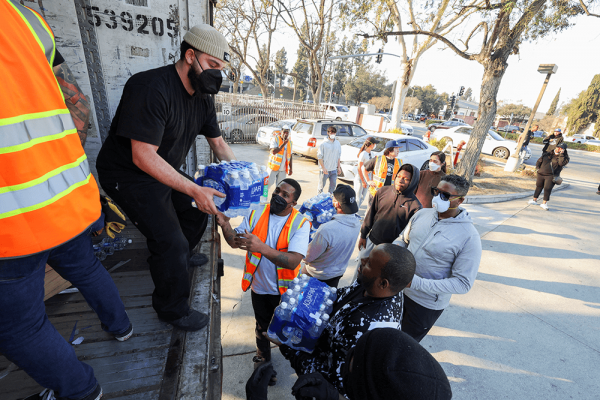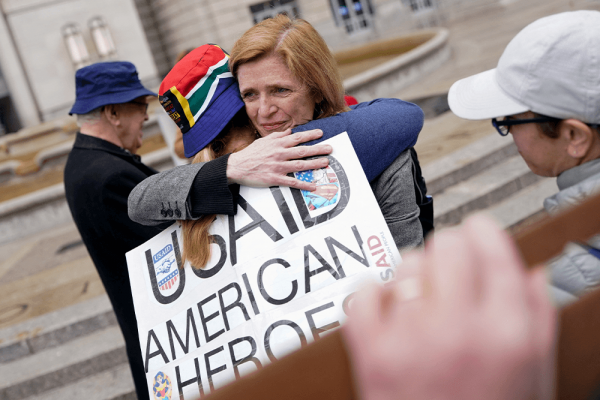Over the course of Donald Trump’s presidency, many have called for his impeachment. Among Filipinos under the Rodrigo Duterte administration, the resounding call has not been to impeach — it has been to unseat.
Impeachment suggests charging a president with misconduct that would disqualify them from public office — that’s not what Filipinos are asking for. Unseating Duterte from office implies that there is a need for people power — a movement to assert democracy and not merely hang one's hopes in a system that has been known to fail or serve only a few. Impeachment calls the government to act, “unseat” calls the general masses to protest and hold government accountable.
Such was the unity of the recent “National Summit for Human Rights and Democracy in the Philippines” — a gathering of over 380 Filipinos and allies from across the United States.
“The people are scared and angry and want to take action,” said Roger Rigor, a convener of the Malaya Movement: A U.S. Movement against Killings and Dictatorship and for Democracy in the Philippines, in a post-summit communique.
Rigor is right. Nearly 46 years after former President Ferdinand Marcos declared Martial Law in the Philippines and became infamous for killings, torture, and forced disappearances, Duterte has followed Marcos’ violence, committing around 27,000 killings in three years. Duterte’s power is only growing. This past week, Duterte-endorsed candidates swept all open senate seats in the midterm elections, consolidating Duterte’s control over the three branches of the Philippines’ government.
Clearly, Filipinos do not lack experience in the struggle against dictatorships — prophetic voices against tyranny always rise.
In the era of Ferdinand Marcos — 1965–1986 — organizing against military rule emerged among the youth, workers, women, Indigenous people, and church people. The people’s power was clear, but it was when the institutional church, through Archbishop Jaime Sin and the Catholic Bishops Conference, put its voice against the immorality and corruption of the Marcos presidency that people’s power revolution emerged to move the dictator out of office.
Whatever the conditions, there is no safe or correct time to resist.
Under Joseph Estrada, another corrupt Philippine president, it was only when church leaders and Archbishop Sin raised their voices that the movement against Estrada gained enough momentum to expel him from the office.
Fr. Ben Alforque, a survivor of torture under Marcos’ regime and speaker at Malaya Movement’s summit, expressed the urgency for church leaders to act against dictatorship, particularly in opposing military aid from the United States.
"We are saddened that in the Philippines, our brothers and sisters are not afforded the rights and dignity of children of God ... We ask you to demand from the U.S. government that its foreign aid be destined to uphold the life, dignity, and rights of our people — not to kill, not to trample, not to violate them ... ” Alforque said in a speech in front of the United Methodist Building to participants during Ecumenical Advocacy Days.
As Fr. Alforque noted, the church in the United States has its own burdens to bear in its complicity toward human rights violations. This includes the widespread evangelical support of the Reagan administration that funded the Marcos dictatorship with military aid. Today, the situation is strikingly similar. Another U.S. president supported by evangelicals sits in the Oval Office. That same president has verbally supported Duterte’s war on drugs and has provided $193 million dollars total in aid (not including arms sales) in 2018 to Philippine state forces — known not only for 27,000 extrajudicial killings but also for harassment of human rights defenders and vast displacement of Muslims and Indigenous people.
Many are reviving these lessons. Rev. Sandie Richards, pastor of the First United Methodist Church in San Fernando and member of the International Coalition for Human Rights in the Philippines, has been helping mobilize a campaign to end U.S. support of the Duterte regime.
“In the San Fernando Valley and all throughout the United States, we don’t want to study war, we don’t want tax dollars going to killings in the Philippines. We want schools to be funded and for people to have a living wage." Richards said.
The call that Alforque and Richards are putting forth — the call for life and dignity in the midst of violence, the call for communities to rise for justice — is why there’s a difference between the call to impeach and the call to unseat. There’s no time to wait in hopes that a new presidential slipup will cause downfall, or a politician will finally decide to be a champion.
It is indeed the work of the church to rise with the oppressed and accompany the poor in demanding justice. The church cannot wait until there is a level of popularity in movements to demand justice. Whatever the conditions, there is no safe or correct time to resist. There is no theological vagueness that the church is Christ’s body in the world.
We must be the ones to enact justice. We must be the ones to remove the mighty from their thrones. We must be the ones to unseat presidents.
Got something to say about what you're reading? We value your feedback!







